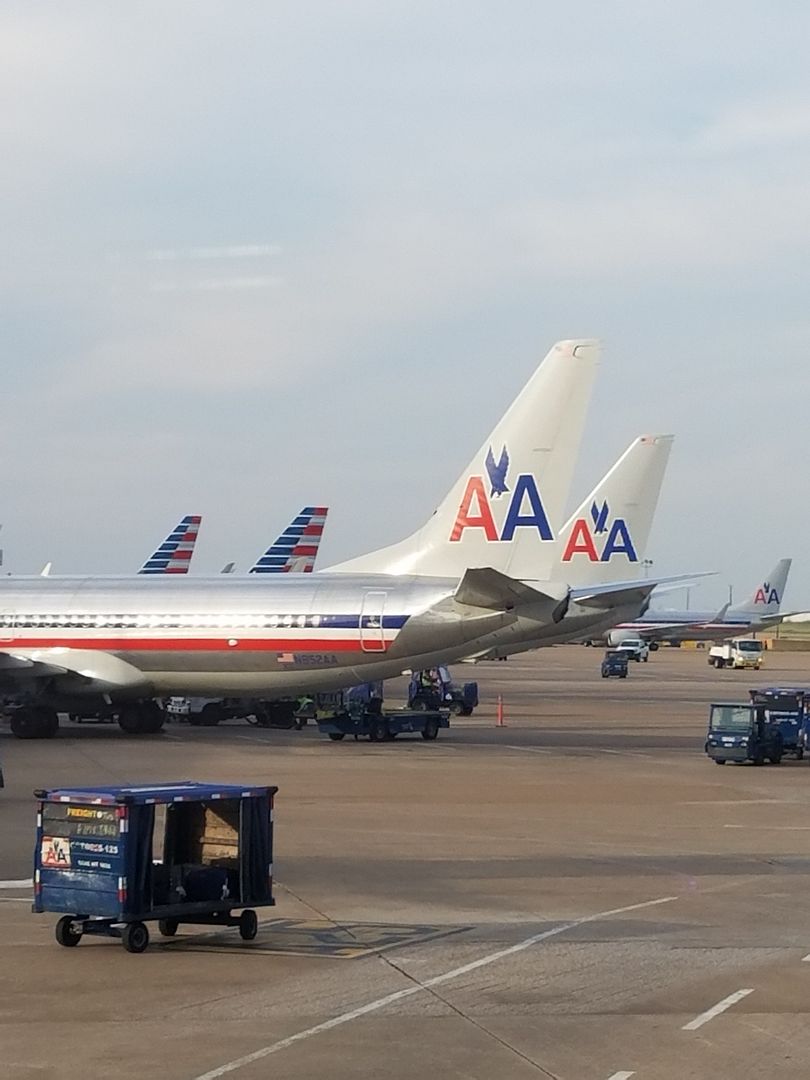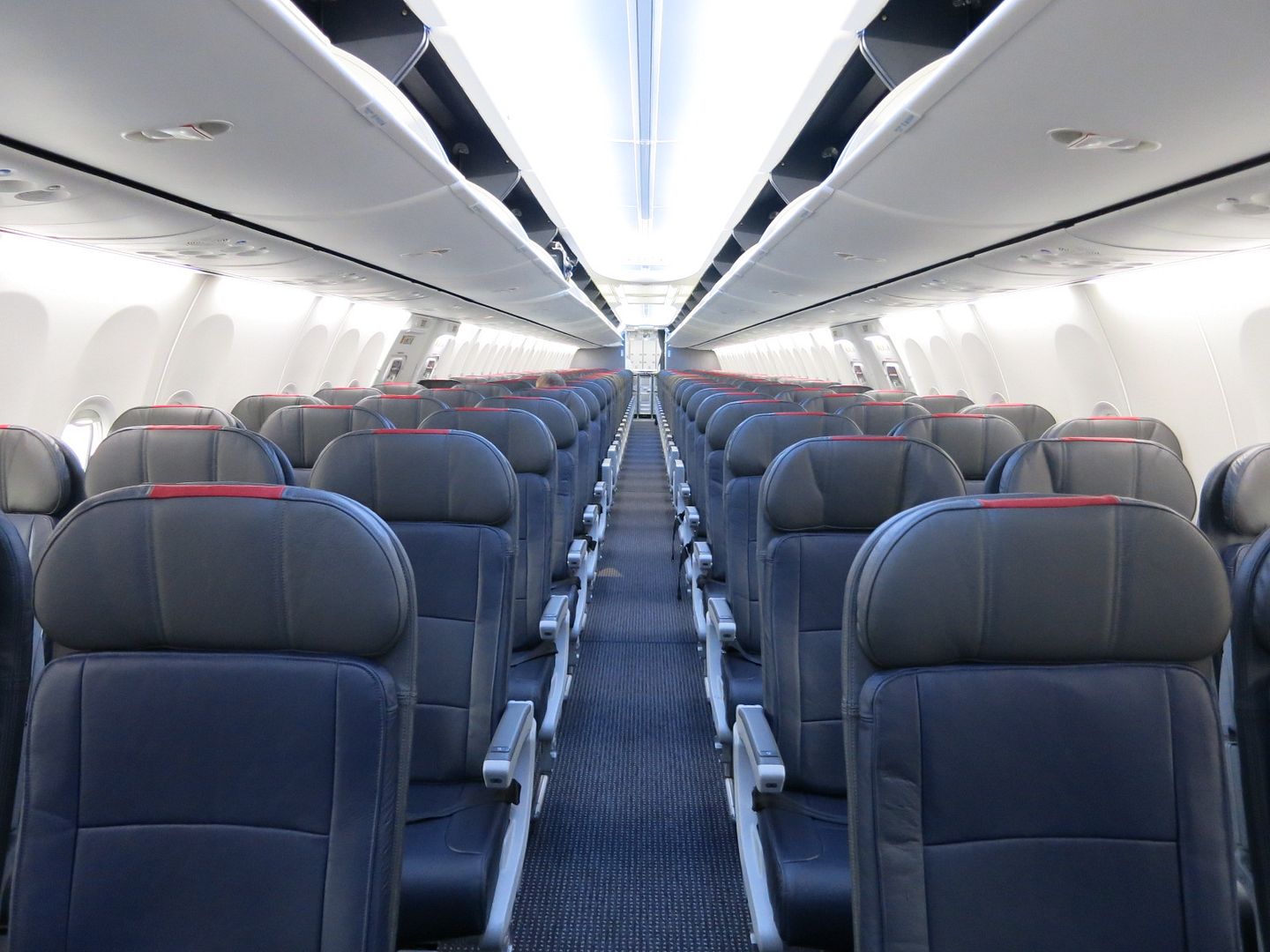Where there’s a moral crusade against the evils of online gambling, there’s usually also funding from the US casino industry (especially from Sheldon Adelson). They’ll say it’s important to regulate gambling responsibly, what that means is it’s important to limit competition and preserve casino profits.
The US hotel industry is lobbying aggressively against Airbnb, and even crowed about their effective lobbying campaign imposing new restrictions in New York State. Of course it’s really about protecting communities from too much transient occupany and driving up the price of apartments. Cough.
The largest US airlines are lobbying aggressively to stop Emirates, Etihad, and Qatar from expanding their US flights, and from being allowed to charge low prices. Of course it’s about ‘American jobs’ (nevermind the jobs created by these flights, or the benefits that flow to Americans from more flight choices and lower prices, or that the aviation industry employs more people in the US than it ever has in history — it’s not ‘under attack’).

The airlines are trying to keep out cost-effective carriers that provide better service at the same time United has a passenger dragged off and bloodied by police when it has a customer service issue, Delta threatens to have a family’s children taken by Child Protective Services, and American is introducing the tightest least comfortable seats in US legacy airline history.

In all cases they’re doing it for you, and for ‘the American Way™’. Because that’s what companies say when they’re picking your pockets.
Traditionally, economics explains that businesses try to manipulate government policy to increase their profits. They’re able to get special favors from politicians because the benefits for them are significant, it pays to learn about the details of legislation and invest in tailoring it. Meanwhile the people who are harmed by this are dispersed. If a policy costs the average person $1, it doesn’t make much sense to invest in learning about the policy let alone spending money to counter it.
Bruce Yandle’s research found examples of this where the costs to politicians for blatantly favoring certain businesses were low, or where there were even political benefits for doing so. It’s the idea of ‘bootleggers and baptists’.
Baptists and other evangelical Christians were prominent in political activism for Sunday closing laws restricting the sale of alcohol. Bootleggers sold alcohol illegally, and got more business if legal sales were restricted.[1]
“Such a coalition makes it easier for politicians to favor both groups. … [T]he Baptists lower the costs of favor-seeking for the bootleggers, because politicians can pose as being motivated purely by the public interest even while they promote the interests of well-funded businesses. … [Baptists] take the moral high ground, while the bootleggers persuade the politicians quietly, behind closed doors.”[3]
Here Bruce explains it succinctly in a video:
Purveyors of illegal alcohol funded the crusades against legality. Purveyors of casino gambling crusade against legalizing online gambling. When you’re lobbying for your own self-interest, it’s helpful to have the cover of a moral argument.
The argument isn’t always wrong, but plenty of people will buy into it if only because it would be more costly to actually learn about the issue than to believe the simple narrative.
When the federal government was doling out money in the aftermath of 9/11, lobbyists descended on Washington, and Congressman Jim Moran (D-VA) declared “It’s an open grab bag, so let’s grab.”
Next up, it seems, the hotel industry is gearing up to use the government to put the screws to Priceline and Expedia.
The U.S. hotel industry plans to step up a lobbying and public relations attack on Expedia Inc. and Priceline Group Inc., hoping to convince consumers and members of the Trump administration that the travel-booking giants are monopolistic.
The American Hotel & Lodging Association, an industry group whose membership includes Marriott International Inc., Hyatt Hotels Corp. and Hilton Worldwide Holdings Inc., devised plans for a campaign saying the online travel companies use unfair practices in their search businesses, according to board meeting documents seen by Bloomberg. The trade group intends to lobby Federal Trade Commission officials on the issue and try to ensure that new members picked by President Donald Trump are friendly to hotels, according to the documents prepared for a January meeting of the group’s board.
On the one hand hotels want to persuade customers to “book direct” while on the other hand they want government to leave consumers with little choice but to do so.
Lobbyists representing Marriott, Hilton, and Hyatt among others plan “to re-brand the hotel industry as tech-savvy and innovative.” They want to influence the Trump administration’s selection of regulators, and they think they’ll have a better shot if they can offer a narrative about how they’re the good guys for America and online travel agencies are monopolies getting in the way of innovation.
The group wants to get more hotel executives speaking at technology conferences and is planning “field trips” for political staff to visit hotel “innovation labs,” according to the documents. “We want to create an environment where the hotel industry is thought of inside the Beltway as an innovator with an important voice in technology policy discussions.”
The problem here is that Marriott’s CEO has been vocally critical of the administration’s travel bans. Hyatt wants to promote a ‘world of understanding’. But they’re happy to use the levers of government for their own ends and suck up to the administration when they think they can benefit.
Once you believe that government should be a tool for one business to use at the expense of another, or to pick the pockets of customers, there’s really no principle to stop other businesses from doing it to you. (In either case, consumers lose.)
Shouldn’t we be sick and tired of putting up with this?


Crony capitalism is alive and well in the travel industry.
What Boraxo said.
The hotel and airline examples here are conventional rentseeking in which businesses use government to undermine their competitors. They are not examples of “bootleggers and Baptists.” That genus of rentseeking requires an alliance between interest groups that appear to be on opposite sides — like bootleggers and Baptists.
I once asked Bruce if he had selected Baptists as his foil because he himself was a Baptist. “Lord, no, I’m a Methodist. But Methodists lacks alliteration.”
@Richard Belzer I lead with the example of casinos and anti-gaming activists shutting down online gaming, and move on to hotel alliances with affordable housing advocates to shut down airbnb, how is that not bootleggers and baptists?
the airlines can count on a group of ppl that will always buy what’s cheapest to them w/o loyalty. the colluding and merger process that they put tens of millions in to get done will reward them after fact and in the long run. so airlines can slap you in the face and say they are enhancing their offering, even with the admission that the seat are “tighter’ but that’s good for you.
Your analysis has kernels of truth, but also contains lots of nonsense. There are good reasons why you don’t want your neighbors to be operating unlicensed “hotels.” Like I suspect you’d personally prefer not to live next to a hotel. Obviously, the hotel industry has a self-interest in supporting groups who want to limit hotel rooms in residential areas, but it’s also true that, sometimes, these operations can have unfair regulatory advantages to “real” hotel operators.
Similarly, you continue to spew nonsense about the massively-subsidized Middle East airlines. I remember you hyper-ventilating when Richard Anderson said that the Middle East airlines should be the last ones to complain about any government money the US airlines received after 9/11, given where the terrorists came from. And now you’re going to use the massively overblown Dr. Dao story to argue for more subsidized Middle Eastern flights? Give us a freakin’ break. I’m sorry, but it doesn’t get more hypocritical than that. You will literally SAY ANYTHING to support those carriers, even though all evidence proves that they operate with a level of subsidy unknown in the history of commercial aviation.
https://www.youtube.com/watch?v=iwJ6I4qpTAI
The comments after delta’s most recent campaign are hilarious
Nice post on a deep subject. I like the part about having politicians visit “innovation labs”. Is that before or after they visit the hookers 🙂
Oh there is a typo Midway through with a “will” that should be a “with” , sorry I hate to be like that, just FYI.
The legacy carriers have succeeded where no one else has been able to. They have united Americans of all political, cultural, racial and religious stripes. All Americans now agree — the airlines are awful. They make 90% of their customers miserable 90% of the time. Finally, something that can bring us all togethger. Now all Americans can join their fellow citizens in despising the airline industry.